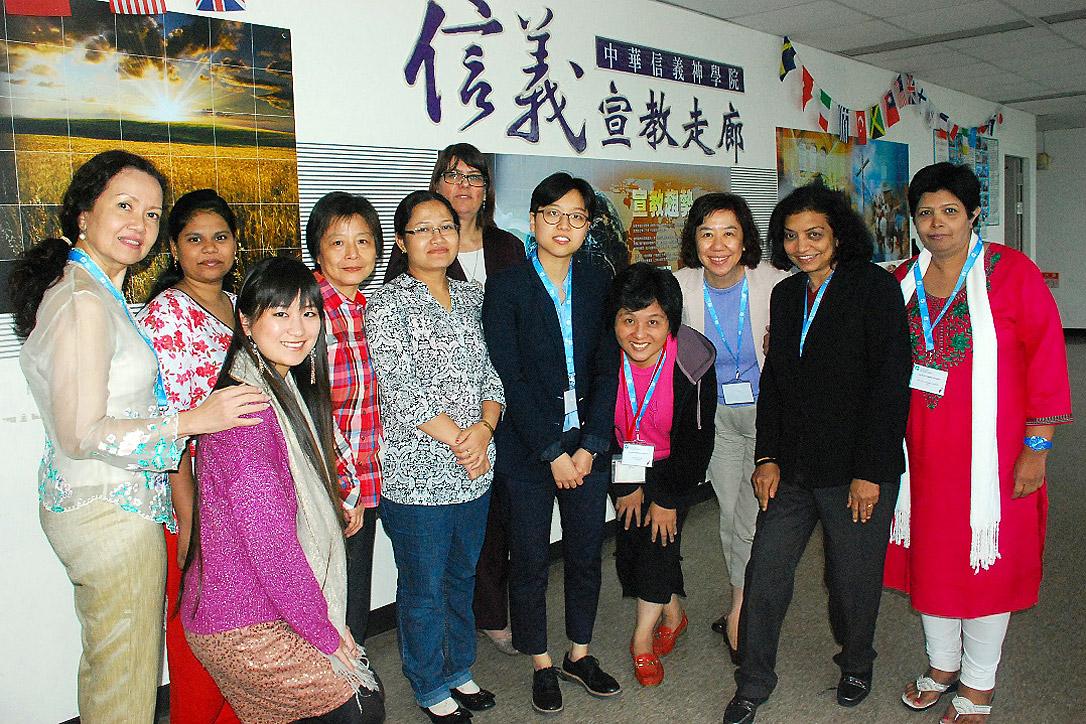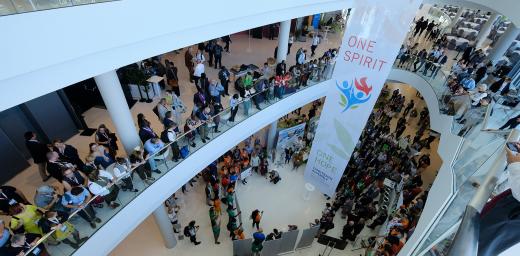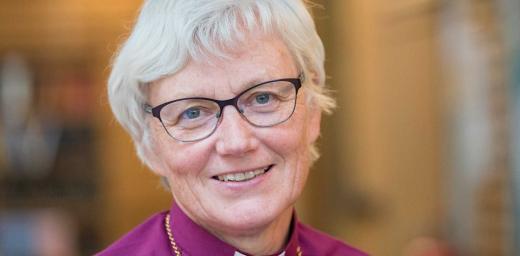Rooting Gender Justice in Biblical, Theological and Local Contexts

Women's meeting prior to Asia Church Leadership Consultation. Photo: LWF/Christy Chok
LWF WICAS Affirms Women’s Contribution to Inclusive Church in Asia
(LWI) – Local translations of The Lutheran World Federation (LWF) policy on gender justice are helping to empower women’s active involvement in church ministry including leadership and decision-making.
Speaking at meetings of the LWF Women in Church and Society (WICAS) program in Asia, the WICAS program secretary Rev. Dr Elaine Neuenfeldt said it was encouraging “to have in hand” the LWF Gender Justice Policy (GJP) in Korean and Japanese. She expressed LWF’s gratitude for the recent local editions and for ongoing translations into other popular languages in the region.
LWF WICAS held meetings for women representatives during the 12-15 April Asia Church Leadership Consultation (ACLC), which was co-hosted by the Taiwan Lutheran Church, Lutheran Church of Taiwan and the China Lutheran Seminary.
Neuenfeldt said the publication of the GJP in 2013 and its distribution among the churches “had affirmed that a respectful dialogical attitude” to the local context is necessary in order to express the diversity of views on gender justice in the LWF communion. “The need to root the discussion on biblical and theological reflection was once more reaffirmed,” she added.
At the ACLC, Neuenfeldt explained LWF’s focus on women’s contribution to the church in view of the 500th anniversary of the Reformation in 2017. She elaborated the ‘Women on the Move: From Wittenberg to Windhoek’ process, launched earlier this year, citing the “Her-stories” component as important in providing a critical reading of churches’ history by paying attention to voices from women.
Ms Ranjita Christie Borgoary, WICAS secretary at the United Evangelical Lutheran Churches of India (UELCI) and coordinator of the West South Asia Lutheran Communion (WESALUC) said women are not fully integrated in the structures of leadership and decision making of many churches in the sub-region including Bangladesh, India, Myanmar, Sri Lanka and Thailand. The poor visibility of women leaders in the churches therefore makes it difficult for women to encourage each other and show how their contribution can be meaningful to the whole church, she noted.
Borgoary cited remuneration disparities between male and female church workers as one of the gender equality challenges that the UELCI is working to address. She said Bible studies are planned discuss how women could participate in leadership among the 11 LWF member churches that make up the Indian Lutheran church body.
Encouraging Stories
But there are also encouraging stories from other parts of the region. Nora Samosir, WICAS representative for the South East Asian Lutheran Communion (SEALUC), said the status of women and men was equal in the workplace in Singapore, including the church. But, she noted, there are challenges in integrating women’s contribution in decision making within the church structures. SEALUC is therefore developing a three-year capacity training program to enable women take up leadership positions in their churches.
One of the main issues emerging from the WICAS representatives’ meeting was that training and capacity building alone would not be enough in encouraging women to take up leadership positions. Participants stressed the need to redefine and remodel church structures to accommodate the diversity of gifts in the communion. They also underlined the value of exchange visits for learning across the respective networks.
“Integrating women in full ministry and in all instances of the church is a key element to building sustainable and inclusive churches. This includes specific attention to policy that ensures the equal presence of women in numbers and in participation,” Neuenfeldt added.
“Holistic Leadership for Sustainability” was the theme of the 2015 ACLC conference, attended by church leaders including women and youth representatives.
(A contribution by Christy Chok, Basel Christian Church of Malaysia)





